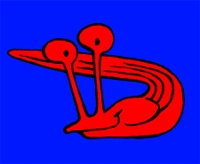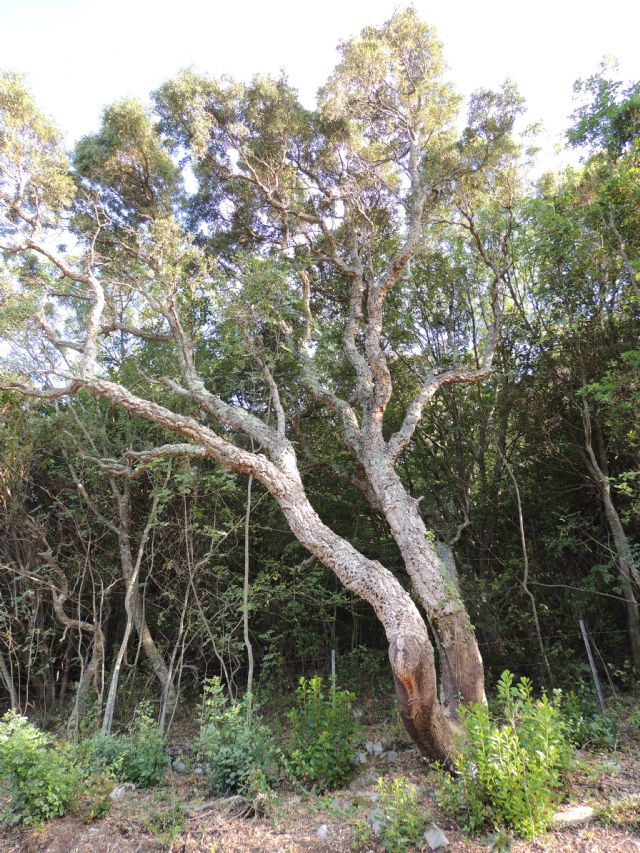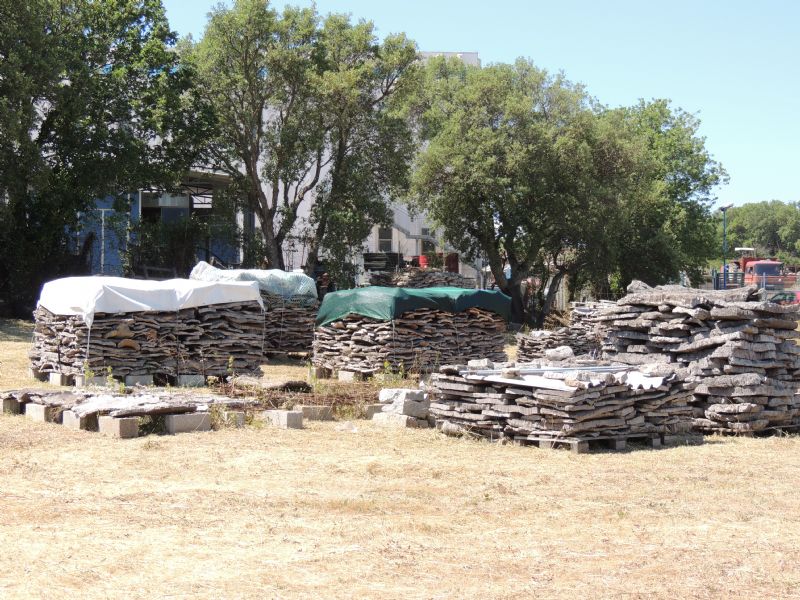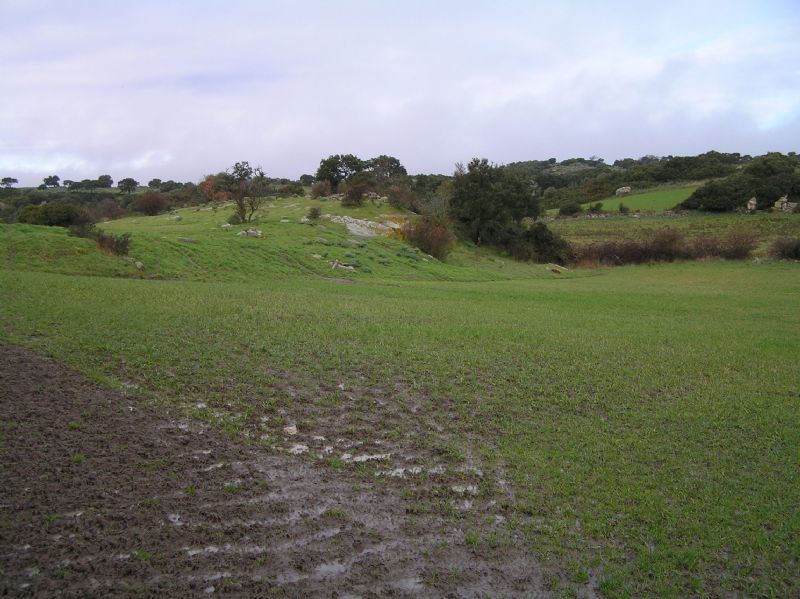|
|
|
|
|
Galleria Tassonomica
di
Natura Mediterraneo
|
 ATTENZIONE! Questo disclaimer è stato aggiornato ATTENZIONE! Questo disclaimer è stato aggiornato
1) Ciascuna discussione tratti una sola specie (avviate una discussione separata per ogni specie che volete trattare).
2) Per richiedere la determinazione è molto importante fotografare (da vicino!) il maggior numero possibile di dettagli, ritraendo da diverse angolazioni fiori (corolla, calice, capolini), foglie, steli, base, ecc… Fate anche una foto complessiva della pianta. Scattare una "bella foto", magari del solo fiore, è inutile per l'identificazione: evitatelo.
3) Inserite i dati geografici (provincia, comune, altimetria), la data e l'ambiente di ritrovamento; per piante molto rare evitate una localizzazione troppo precisa (o tali dati verranno nascosti).
4) Le piante si devono trovare in ambiente naturale; le discussioni su quelle coltivate (in giardini, aiuole, vasi), o contenenti piante recise, o sradicate, verranno rimosse.
5) Per le piante alloctone non naturalizzate, ma coltivate o ritratte in Paesi non dell'area mediterranea si usi la sezione "Piante nel mondo", o le discussioni verranno spostate in essa o rimosse.
6) Per ragioni legali, non è possibile discutere della commestibilità delle piante.
|
|
| Autore |
 Discussione Discussione  |
|
|
Cmb
Moderatore
    

Città: Buers
Prov.: Estero
Regione: Austria

12844 Messaggi
Flora e Fauna |
 Inserito il - 04 maggio 2017 : 07:48:26 Inserito il - 04 maggio 2017 : 07:48:26


|
Ho fatto un pezzo d'esposizione filatelica sullo problema dell'uso ed recycling...

Quercus suber - Luogosanto (Sardegna)

La corteccia - vic. Calangianus (Sardegna)

Agricoltura & erosione in Sardegna
Kork ist ein Naturprodukt, für das es zahlreiche Verwendungsmöglichkeiten gibt – uns sind die Korken aus Champagner-, Sekt- oder Weinflaschen bestens bekannt. In Deutschland fallen jährlich etwa 1.200.000.000 Flaschenkorken an. Das entspricht 32.000 Kubikmeter Korkschrot. Nur ca. 1/10 des „Mülls“ wird recycelt (wiki). Das ist die eine Seite der Medaille – auf der anderen Seite wissen wir, dass die Korkbildung verkümmert, wenn der Kork nicht geerntet wird. Dann roden Wald-Eigentümer und schaffen Freiflächen. Dort ist der Ertrag kurzfristig durch Viehhaltung grösser als der langfristige Ertrag aus dem Korkeichenwald. Vergammeln die Korkwälder im Mittelmeerraum, werden die Eigentümer diese Wälder auflassen und mit Pinie und standortfremdem Eukalyptus aufforsten – die Vielfalt der Begleit-Fauna und -Flora – stirbt aus. Immer wieder wird das Argument ins Treffen geführt, dass Plastikstopfen oder Alu-Drehverschlüsse weniger negative Einflüsse auf den Wein haben. Studien der Hochschule Geisenheim (Institut für Önologie) enttarnen Chlorverbindungen (PCP, TP, TCP), die in Holzschutzmitteln verwendet wurden und werden als Verursacher der Kork- und Muffton-Problematik. Ein Sardischer Winzer hat einen praktischen Versuch gemacht: vier gleiche Flaschen, gleicher Wein, vier verschiedene Verschlüsse – und siehe da: jeder der Weine schmeckte anders…
Cork is a natural product that can be used in many different ways – we best know the corks from champagne bottles, sparkling or still wine. In Germany about 1,2 billion (bottle) corks are needed every year. That’s about 32,000m³ cork grist. Only 10% of all the „waste“ is being recycled (wiki). That’s what it is on the one hand. On the other hand we know that the development of cork becomes stunted when it is not harvested. Subsequently forest owners clear the woods and build open spaces. Yield is bigger through animal husbandry in the short run than the one from a cork oak wood. If cork woods go to stale in Mediterranean area, owners vacate these woods for reforesting with pine or non-domestic eucalyptus – diversity of fauna and flora dies. Every now and then it is claimed that plastic plugs or aluminum fasteners have less negative impact on wine. Studies by the University of Geisenheim in Germany (institute of oenology) unmask chlorine-compounds (PCP, TP, TCP), which are used in wood preservers and are identified as initiators of the cork and cork-smell-problem. A Sardinian vintner made a practical test: four equal bottles, equal wine and four different closures and here, look: every wine tasted differently (trad. Wolfgang Brandstetter).
link per il pezzo d'esposizione
Chi mi fa la traduzione... ? 
|
"Good people don't go into government" (D. Trump)

Link - nothing is more dangerous than the truth - solo chi conosce il passato, può capire il presente! - nothing is more dangerous than the truth - solo chi conosce il passato, può capire il presente!
|
|
| |
 Discussione Discussione  |
|
|
|
 Natura Mediterraneo Natura Mediterraneo |
© 2003-2024 Natura Mediterraneo |
 |
|
Leps.it | Herp.it | Lynkos.net
|

 Forum
|
Registrati
|
Msg attivi
|
Msg Recenti
|
Msg Pvt
|
Utenti
|
Galleria |
Map |
Forum
|
Registrati
|
Msg attivi
|
Msg Recenti
|
Msg Pvt
|
Utenti
|
Galleria |
Map |